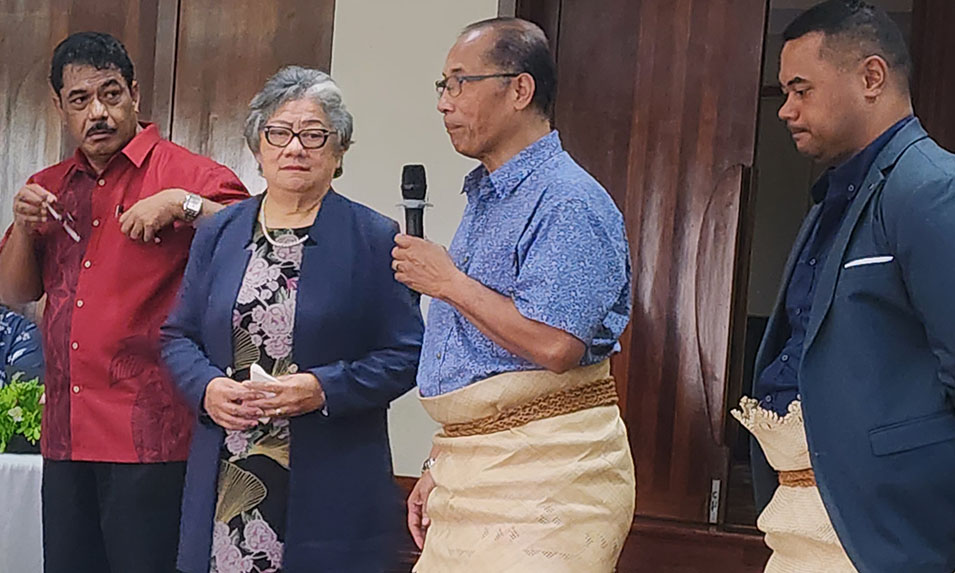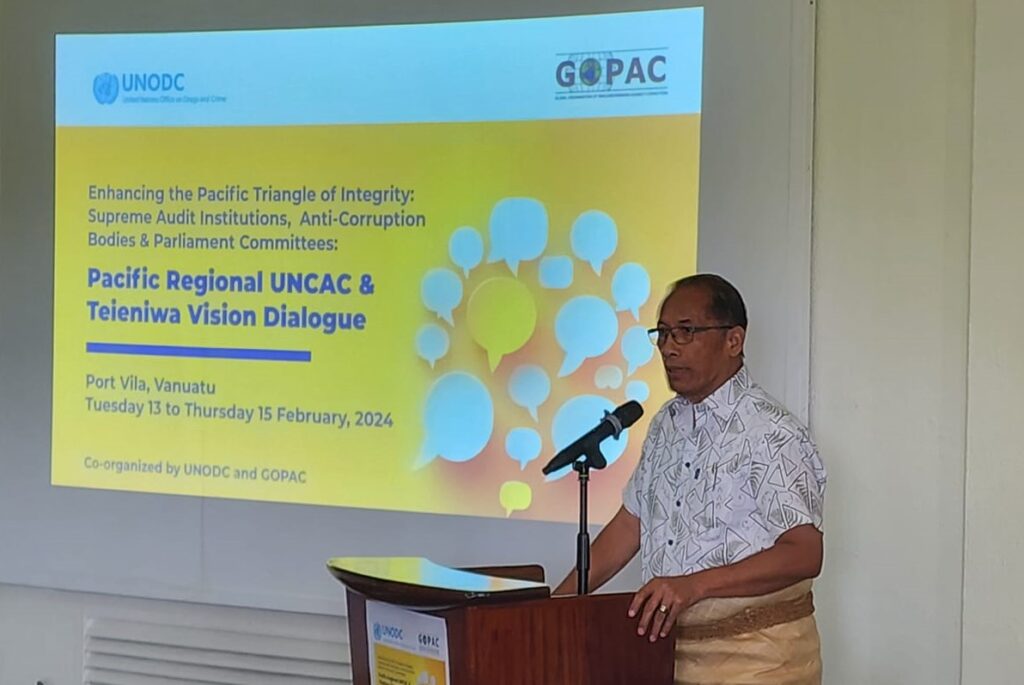In a regional three-day dialogue held last week in Port Vila, Vanuatu, it was declared that corruption is threatening the economic development of nations in the Pacific.
A press release from the dialogue says that what is required urgently is community awareness, building of integrity in society, and collaboration from all the agencies both government and non-government in the fight against corruption.
The Port Vila dialogue included representatives from across the Pacific. These representatives are working together to strengthen their role in the fight against corruption, with support from the United Nations Office on Drugs and Crime (UNODC) and the Global Organisation of Parliamentarians Against Corruption (GOPAC)
Four delegates from Tonga joined the dialogue: Dr. ‘Uhilamoelangi Fasi, Chair of the Tonga Parliament Standing Committee on Anti-Corruption and GOPAC Tonga; ‘Alisi Tuamoepeau, KC, the Ombudsman; Roman Vaihu, Director of Investigation; and Sefita Tangi, the Auditor General.
“Corruption is a complex phenomenon, cross cutting different sectors of society and posing a serious threat to countries’ economic development,” said Marie Pegie Cauchois, UNODC Pacific Officer in Charge and Regional Anti-Corruption Adviser.

In the Pacific, parliamentarians, supreme audit institutions and anti-corruption bodies have formed the Triangle of Integrity, a partnership built to boost oversight of corruption capture and prevention in the region.
But critics have pointed out that there has been a lot of talk but very little action against corruption in the Pacific.
The Teieniwa Vision is a regional roadmap developed in 2020 in Kiribati to unite Pacific Island nations against corruption. It stresses that integrity-building must be embraced as a whole-of-society issue, while respecting the separate mandates of each anti-corruption body.
But the challenge of fighting corruption in the region, and prioritising the Teieniwa Vision may be tested severely this year, especially at the next Pacific Islands Forum (PIF) Leaders’ meeting to be hosted by Tonga, and to be chaired by the new chair of PIF, Prime Minister Siaosi Sovaleni.
PIF will also have a new Secretary-General this year. He is the former President of Nauru, Mr. Baron Waqa, a very controversial individual, to say the least.
During his term as President, he dismantled temporarily the judiciary when it did not go his way. He was also very opposed to the notion of press freedom, especially when journalists filed critical reports about his administration. He jailed some of the journalists visiting Nauru, including Barbara Dreaver, a well-known Pasifika journalist.
Mr. Waqa established a policy in Nauru during his term, which charged a high fee for visa applications for journalists. The policy was designed to discourage foreign journalists visiting Nauru.
But the most concerning thing concerning the new Secretary-General is the fact that the Australian Federal Police are still investigating him for alleged bribes by an Australian company.
As for the position of Secretary-General, it was Micronesia’s turn to select one. Nauru was offered to field the Secretary-General, and they came up with Mr. Waqa. His candidacy was not only supported by Micronesia, but at the Suva meeting of PIF Leaders, he was approved to be the new Secretary-General.
So, here is a man in key leadership over the region’s premier organisation, and he is “tainted with corruption” allegations. It is a fair question to ask that while the region is trying to act on the Teieniwa Vision, and corruption has been declared as the chief threat of economic development in the region, why then the leaders select a man alleged to be corrupt to be their Secretary-General?
Questions and objections were raised at the Cook Islands meeting in November, but nothing came out of it. There seemed to be a consensus that “keeping the peace” was more important that questioning the suitability of the new Secretary-General.
PIF and the leaders of the Pacific will be making a hard choice when they meet in Tonga in August, whether the fight against corruption is going to be more rhetoric, or whether they’ll be action.






